These 7 Anxiety Symptoms Often Go Unnoticed

This is a disclaimer that this article is for informative purposes only. It is not intended to serve as mental health advice or to diagnose any condition. Please reach out to a qualified mental health practitioner or doctor if you are struggling.
We’ve all experienced some form of anxiety at one point or another. Perhaps you can think of a time when you had a huge presentation coming up or a test that you didn’t study for where you felt the characteristic “butterflies.” Feeling anxiety is completely normal in isolated circumstances, but becomes a problem when these feelings grow more frequent and overpowering. While we generally can recognize the more telltale signs, there are many others that often go unnoticed. Therefore in this article, we’ll be looking at seven unusual signs of anxiety.

To Recap: What Is Anxiety?
When we say anxiety, we generally refer to Generalized Anxiety Disorder (GAD), but the term also can apply to phobias, panic disorders, and PTSD. It is the result of the fight or flight response in order to combat danger. However, this system can be overactive and kick in despite limited to no level of danger, which in effect disrupts function and quality of life. Some of the general symptoms include:
- Nervousness
- Insomnia
- Feelings of danger
- Scattered thoughts
- Overthinking
- Hyperventilation
(Source: Mayo Clinic 2018)
With that out the way, here are seven unusual symptoms of anxiety:
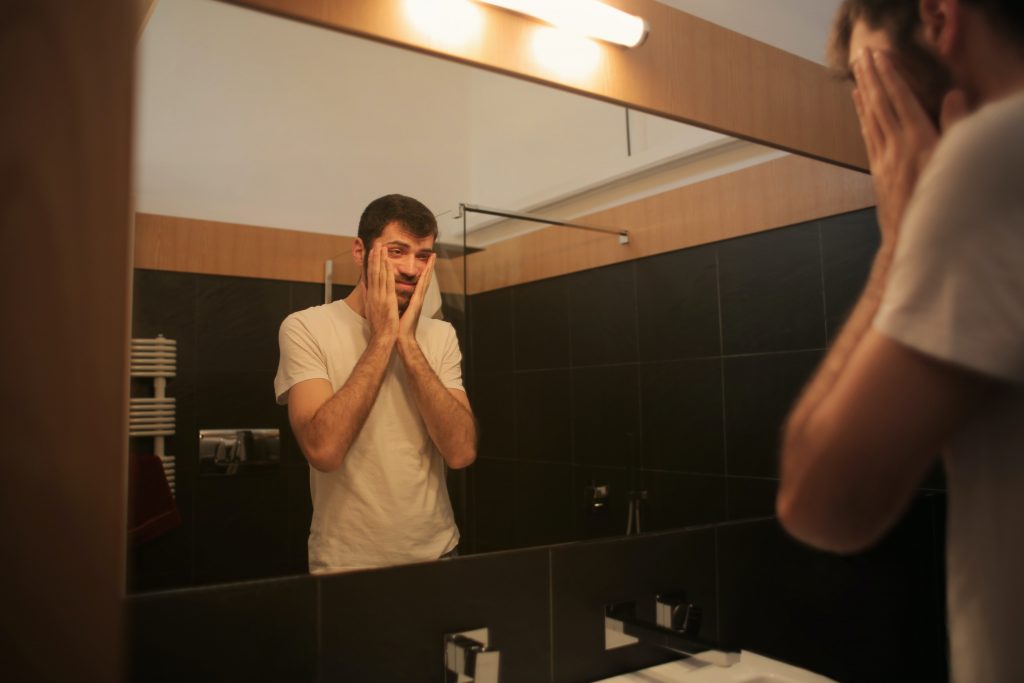
1. Stomach Problems
Anxiety has a strong link with certain stomach problems. Having an excess amount of gas, bloating, and indigestion are common (Ankrom 2021). People with specific gastrointestinal conditions, like irritable bowel syndrome among others, may find that their symptoms flare up with anxiety. Eating healthily, avoiding caffeine, along with coping with your stress are great ways to reduce these problems (Ankrom 2021).
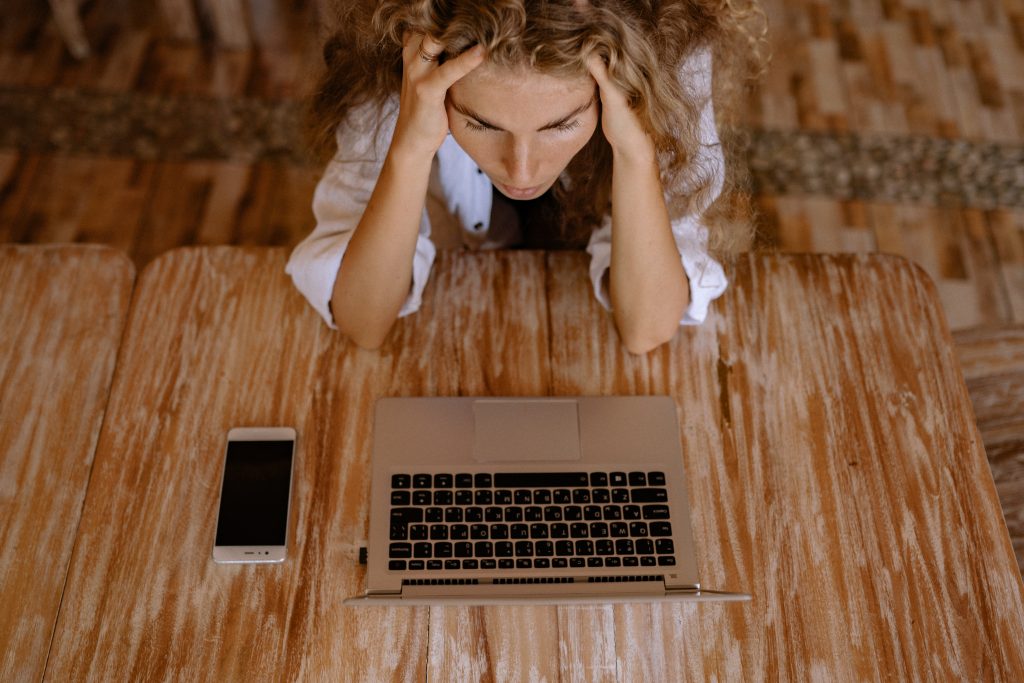
2. Forgetfulness
When in a state of constant overthinking and worry, you may find it hard to focus on other things. This can make it especially hard to remember things and keep your thoughts organized. You may forget where certain items are, what tasks you’re supposed to do, or what time to meet people at. Part of this can be attributed to anxiety itself, but can also be contributed to sleep deprivation as a result of anxious symptoms (Advantage Mental Health Center 2020).
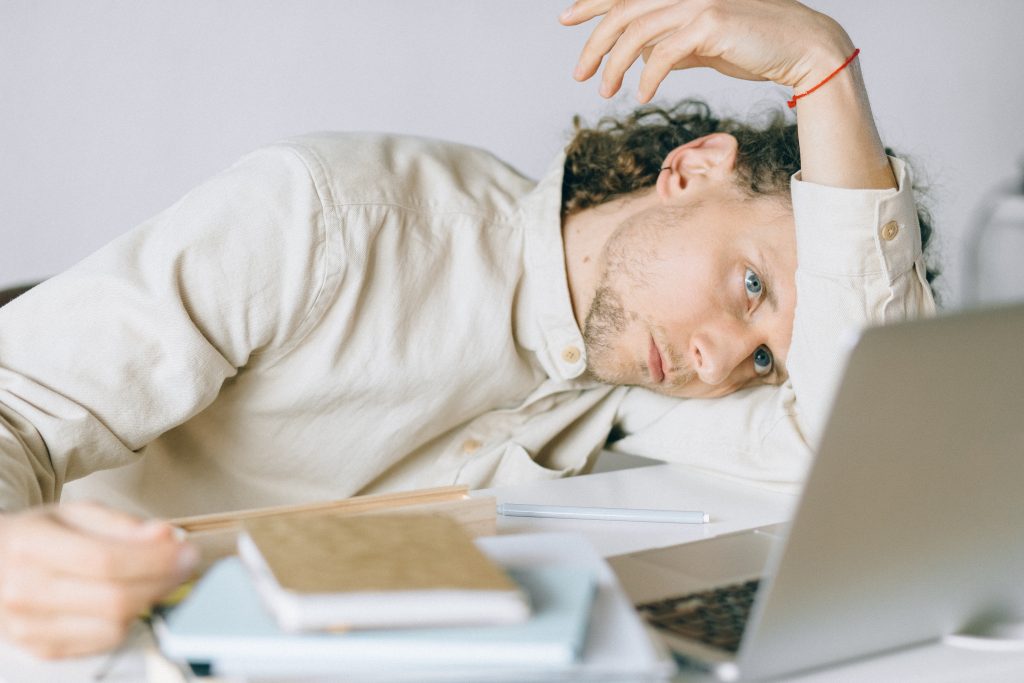
3. Unusual Aches and Pain
Anxiety comes with a plethora of physical symptoms alongside psychological ones. When you are feeling especially anxious, you may notice that you have strange painful sensations that cannot be contributed to anything else. This is usually due to muscle tension as a result of the fight or flight response (Raypole 2019).
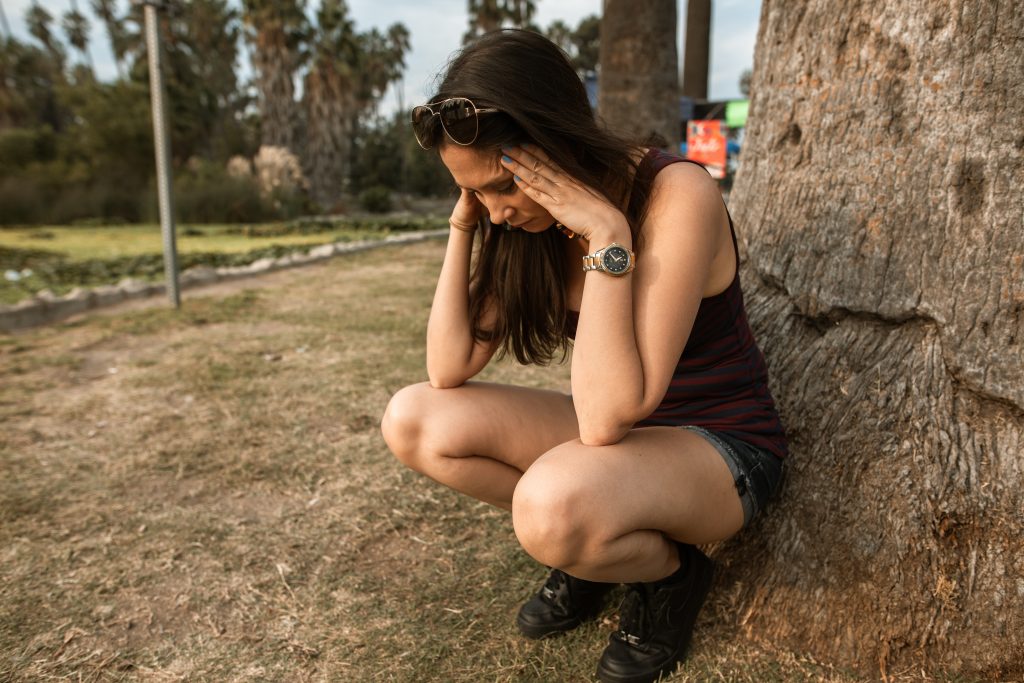
4. Rash and Other Skin Conditions
Weird itching, hives, and other types of rashes may be attributed to anxiety. According to a 2019 Enlightened Solutions article, this is due to an increase in cortisol and adrenaline that make your body more prone to developing these conditions. It is important however, to seek help if a rash gets worse or persists for extended periods of time, as it may be a sign of something else (Enlightened Solutions 2019).

5. Excessive Sleepiness
Anxiety is tiring; being in a constant state of alert and worry is very tiring, coupled with the fact anxiety makes sleeping more difficult. It is easy to feel fatigued with anxiety and thus can cause problems in other areas of life. You may find yourself with less energy to do the things you once enjoyed, but find it difficult to rest up (Advantage Mental Health Center 2020).
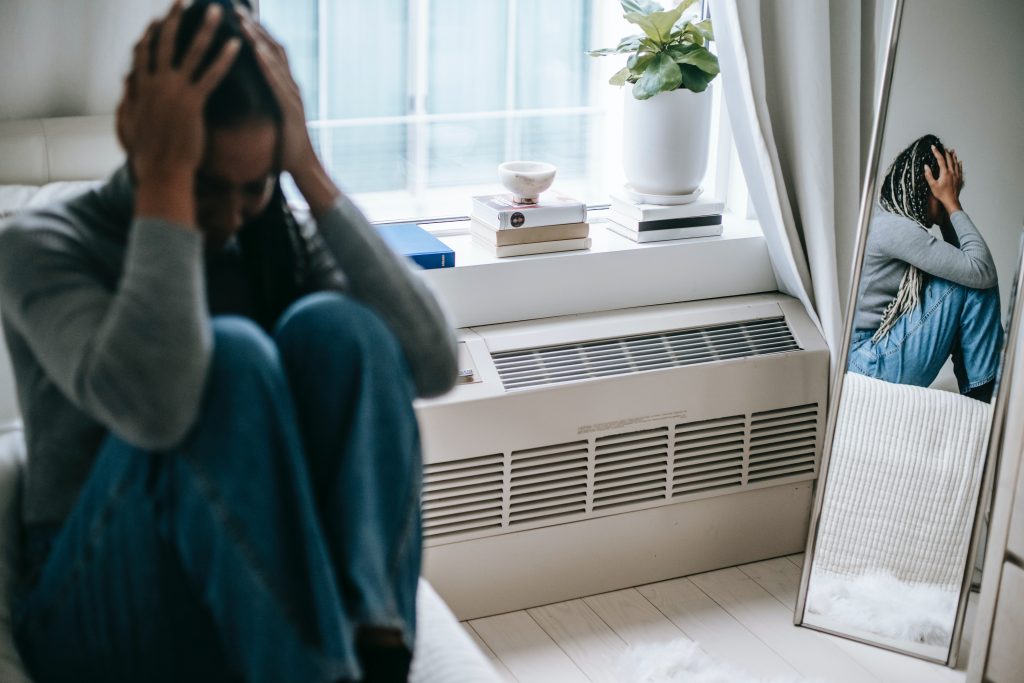
6. Impulsive Behaviors
Anxiety can put your emotions on overdrive and cause you to act out in ways you normally would avoid. You may find yourself saying things to others without thinking. Similarly, you may find yourself taking part in harmful activities that you’d normally stay away from. Anxiety can make it difficult to think clearly and put you more on edge than normal (Advantage Mental Health Center 2020). Often times, the impulsive behavior stems from trying to control the anxiety symptoms. This is why some people may take part in risky activities such as drinking or self-harm among others (HOPE Therapy and Wellness Center 2019).
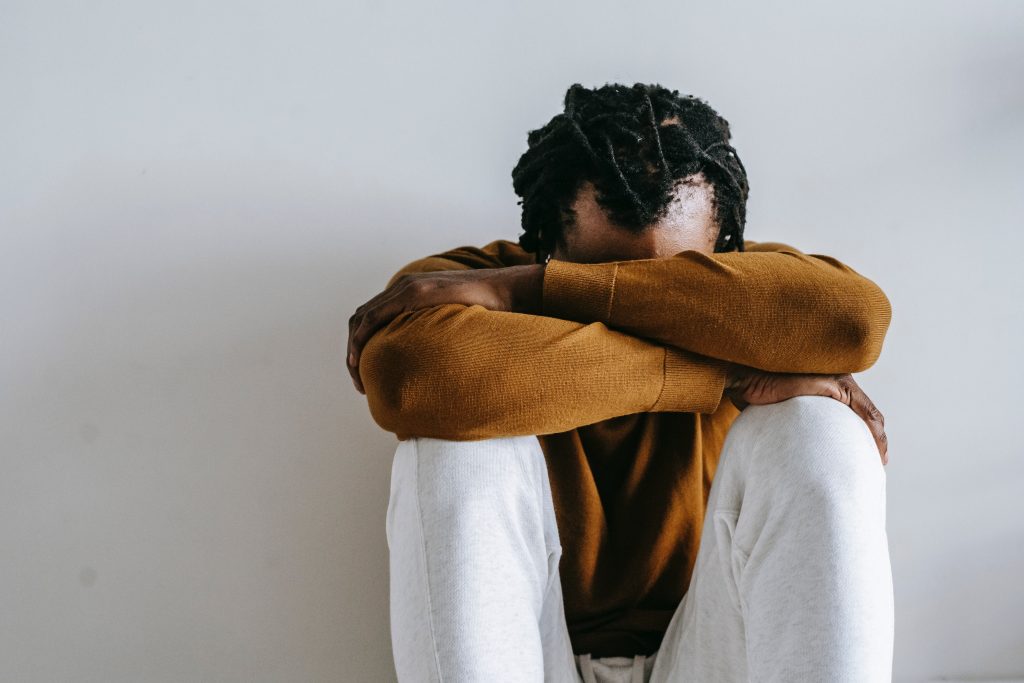
7. Feeling Cold
When you feel particularly anxious, you may notice that you feel colder than normal. The fight or flight response can make circulation difficult making the temperature feel on the chilly side. This is especially true in fingers and toes, in which circulation is harder in general (Blaker 2019).
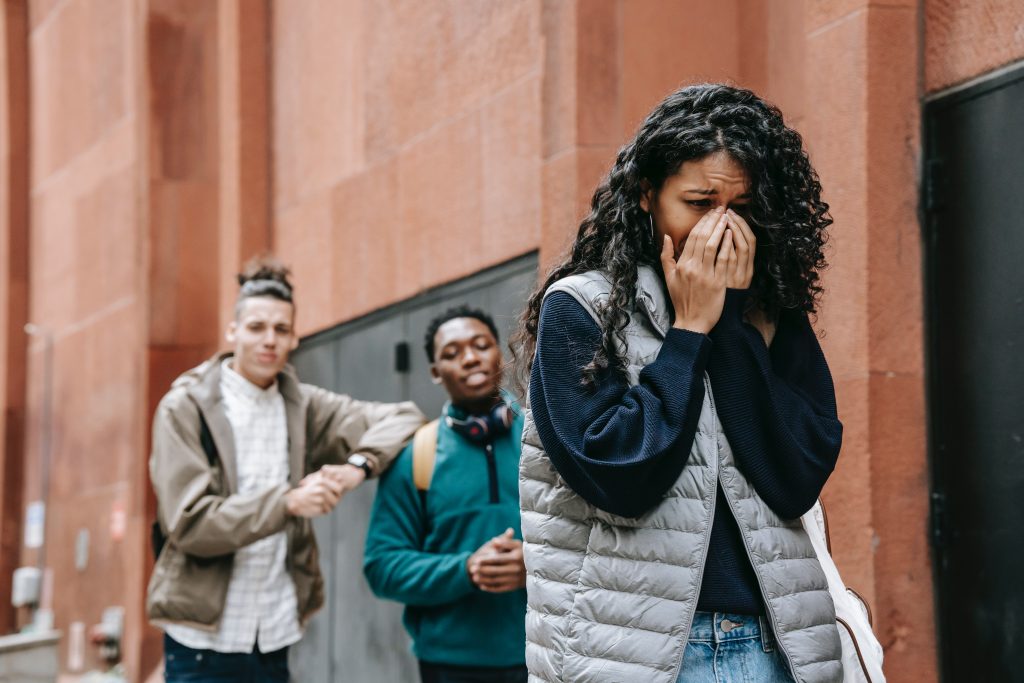
While anxiety is a perfectly normal feeling from time to time, it can come to a point where it becomes overwhelming. Anxiety is much more than just psychological and can have major impacts on your life. Please reach out for help if you are struggling. Getting in contact with the right mental health professional can be a great first step to getting your life back on track.
What do you think about the subject? Are there anymore unusual signs that we should know? Let us know in the comments!

References:
- Advantage Mental Health Center. (2020, May 4). Six Unusual Anxiety Signs. advantagementalhealthcenter.com/six-unusual-anxiety-signs/
- Ankrom, S. (2021, February 16). The Link Between Gastrointestinal Upset and Anxiety. Verywell Mind. www.verywellmind.com/gastrointestinal-gi-symptoms-and-anxiety-disorders-2584240
- Blaker, K. (2019, June 12). How to Recognize Unusual & Distressing Anxiety Symptoms. AmeriDisability. www.ameridisability.com/post/distressing-anxiety-symptoms-you-might-never-expect
- Enlightenedsolutions. (2019, October 11). What is Anxiety Rash? www.enlightenedsolutions.com/anxiety-rash/
- HOPE Therapy and Wellness Center. (2019, September 18). Anxiety and impulse control disorders. HOPE Therapy and Wellness. https://www.hopetherapyandwellness.com/blog/131904-anxiety-and-impulse-control-disorders#:~:text=Yes%2C%20anxiety%20can%20cause%20impulsivity,causes%20a%20person%20to%20overthink
- Mayo Clinic. (2018, May 4). Anxiety disorders – Symptoms and causes. www.mayoclinic.org/diseases-conditions/anxiety/symptoms-causes/syc-20350961
- Raypole, C. (2019, March 15). Physical Symptoms of Anxiety: How Does It Feel? Healthline. www.healthline.com/health/physical-symptoms-of-anxiety


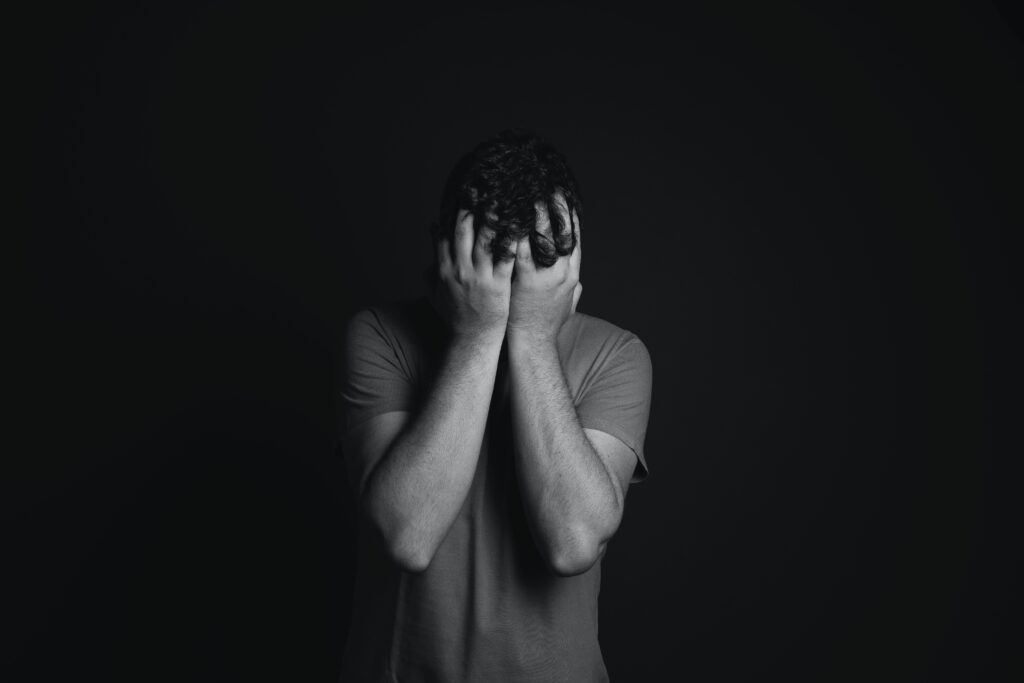
Responses